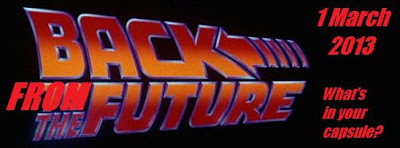Ask the Editor: Pre-Query Advice
Welcome to day three of Ask the Editor week, in which Kimberly Blythe, head editor at Omnific Publishing is answering questions from bloggers. Thanks for your comments the last couple of days! I find today's advice to be particularly valuable---it's not easy to do, especially in an industry that pushes us to crank books into the world at lighting speed, but setting your story aside for a while makes a huge difference in your ability to effectively edit it.
Q Suzanne: Is there one piece of editing advice you could give that we could all look out for in our own ms before submitting to an editor or agent?
If you missed her earlier answers, you can find them here:
A Kim: I would advise writers to let their story sit untouched for a few months before they go back and review it. Time and distance is a great way to find things that will confuse other readers. You will never be your own best editor, but with a little time and distance, you will be amazed at the gaps you will notice. Also, and I cannot emphasize this enough, read your book aloud. This is a great way to notice everything from choppy writing to grammar problems to stilted dialogue. It will slow you down enough to keep your eyes from racing over it too quickly to see problems, and it will help you see if you have done things like overused a phrase or word in a way that becomes distracting.
Try writing a chart or timeline for your story. Can you identify a definite rising action, climax and resolution for it? (Remember that plot chart from Language Arts that looked like a roller coaster?) If you're writing a series, try not to save all of your reveals for the next book. All too often, first books in a series are used extensively for set-up in a way that makes the reader frustrated with the lack of information. Don't confuse reader frustration with anticipation, because frustration leads to fatigue and a high chance that they won't bother with a sequel.
That was two pieces of advice, but I think they're related. They boil down to my recommendation that you try to look at your story from a technical point of view, like you are writing a book report. This should help you be more critical and able to assess your story's strengths and weaknesses.



Comments
Good thing I never planned a sequel. My first book really wasn't set up to lead into others.
Love,
Janie